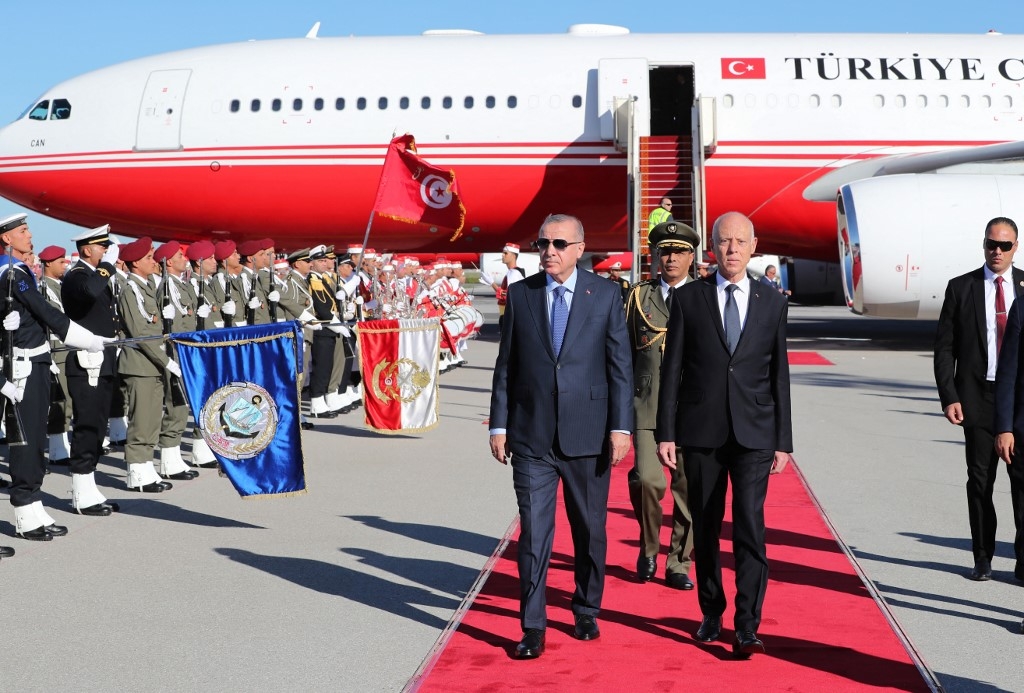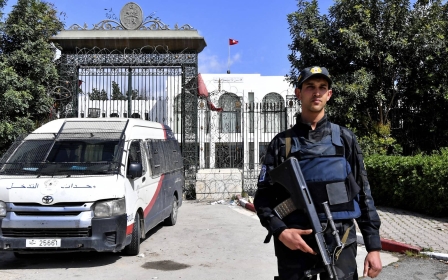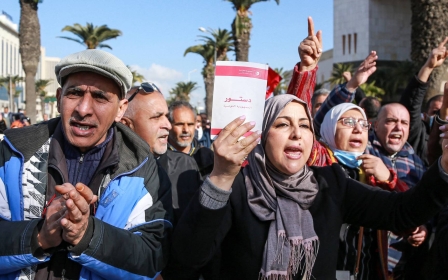Erdogan says Tunisian democracy is 'stained' after parliament's dissolution

Turkish President Recep Tayyip Erdogan has called the dissolution of Tunisia's parliament a "blow to the will of the Tunisian people," marking the strongest criticism by Ankara to date of the political crisis unfolding in the North African country.
Tunisian President Kais Saied dissolved the country's parliament on Wednesday and vowed to prosecute MPs who held a plenary session online and voted through a bill against his "exceptional measures".
The online session represented parliament's most direct challenge to Saied after he suspended the chamber last July, brushed aside most of the 2014 constitution, and moved to rule by decree.
In a written statement on Monday, Erdogan said he was saddened by the dissolution of parliament and by reports that Saied would prosecute lawmakers who joined the online session in defiance of the president.
"We hope that these developments won't harm the transition period to restore democratic legitimacy and we value the realisation of the roadmap for elections," Erdogan said.
New MEE newsletter: Jerusalem Dispatch
Sign up to get the latest insights and analysis on Israel-Palestine, alongside Turkey Unpacked and other MEE newsletters
"We believe the developments in Tunisia are staining democracy. It is thought-provoking for the future of Tunisia that an assembly with elected officials was dissolved. And it is a blow to the will of the Tunisian people."
Turkey has avoided describing Saied's power grab as a coup, with Ankara keen on maintaining open communication channels and pursuing a diplomatic approach to encourage the continuation of the democratic process in the North African country, two Turkish officials told Middle East Eye last year.
Erdogan and his ruling Justice and Development Party (AKP) share close ideological and friendly ties with Ennahda leader Rached Ghannouchi, the parliament speaker, who hasn't been able to enter his official office since the takeover.
Saied, a former law professor, says his actions are in line with the constitution and necessary to save Tunisia from years of political paralysis and economic stagnation.
He has said he will form a committee to rewrite the constitution, put it to a referendum in July, and then hold parliamentary elections in December.
Under Article 80 of Tunisia's 2014 constitution, parliament must remain in session during exceptional periods.
Even Article 72, which Saied has invoked, does not allow him to dissolve parliament.
Middle East Eye delivers independent and unrivalled coverage and analysis of the Middle East, North Africa and beyond. To learn more about republishing this content and the associated fees, please fill out this form. More about MEE can be found here.




